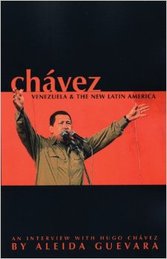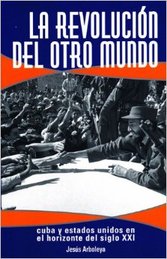Note: This is the first in a serious of six posts, posted from June 17 to July 5, 2017, reflecting on Donald Trump’s announcement on June 16, 2017 of a change of policy toward Cuba.
Donald Trump announced a new policy toward Cuba on June 16, 2017 in the “Little Havana” section of Miami. The speech was broadcast in its entirety on Cuban educational television (with high quality simultaneous verbal translation) the same evening, so I had a chance to view the spectacle. I was astonished at the profound ignorance of Cuba that the speech displayed. Trump’s view of Cuba appears to have been shaped by the distorted views of the extreme Cuban-American Right, which have been constructed to advance a political agenda of a sector of the Cuban-American community in Miami, and they have little semblance to actual Cuban reality. Trump, for example, seems to believe that Cuban “dissidents” have some level of influence or viability in Cuba, when in fact high officials in the U.S. government have acknowledged on various occasions that the “dissidents” have no influence and are more interested in making money from their U.S. connections than in building any kind of credible opposition. The anti-communist rhetoric of Trump, focusing on repression and so-called political prisoners, seemed to be uttering a discourse that was discovered in a time warp.
Barack Obama also wanted to undermine the Cuban Revolution. But he had the intelligence to listen to some people who knew something about Cuba, and he thus concluded that it was political folly to continue to speak of repression and “dissidents.” Appreciating that Cuba was expanding opportunities for small-scale private entrepreneurship and was expanding Internet, Obama hoped to take advantage of these changes in order to expand the middle class, which eventually would form a viable political force in support of capitalism, and perhaps would form useful alliances with U.S. capital (see various posts in March 2016 on the Obama policy with respect to Cuba, found in the category Cuba Today). Given that Cuban leaders at all levels and in a wide variety of institutions understood that such was Obama’s intention, the success of the plan confronted serious obstacles. Nonetheless, it certainly was more intelligent that continuing a dysfunctional blockade that damages U.S. prestige throughout the world.
In his speech, Trump announced that the Obama agreement with Cuba, in which the United States gained nothing, is cancelled. But other than invoking ill-informed tough language, it is not clear how the Trump policy will be different. Diplomatic relations between the United States and Cuba will continue, and the wet-feet/dry-feet immigration policy remains dead. Trump announced that U.S. companies will be prohibited from doing business with companies or entities tied to the military, but there are few state companies in Cuba that have such ties. The commercial relations that have been forming under the Obama policy change, such as the Verizon agreement with the Cuban state Internet company, would not seem affected. On the other hand, if Trump plans to clamp down on tourism in a way that reduces U.S. tourist projections, this may affect U.S. airlines that have been developing commercial flights between the United States and Cuba. I will be studying U.S. documents and declarations in the upcoming days, seeking to discern the specifics of the new policy.
Although Trump presented Cuba as dominated by the military forces, this is far from the case. The great majority of Cuban state enterprises are not part of the military. Among the largest and most important enterprises are the state-owned petroleum and telephone/Internet companies, neither of which has ties to the military. The most important sectors of the Cuban economy are tourism, sugar, mining, and pharmaceuticals. In these sectors, the principal companies are state-owned, some in joint ventures with foreign capital (mostly from Europe and Canada), and none of which are connected to the military. One important retail chain is owned and managed by the armed forces, but this is an exception to the general pattern in the economy.
Nor is there military dominance of the political process. The highest political authority in the nation is the National Assembly of Popular Power, which is elected by the municipal assemblies, which are nominated and elected by the people without the participation of any political parties and without the distorting effects of campaign financing. The National Assembly elects the thirty-one members of the Council of State, a few of whom are members of the military, but the great majority of whom are not. Voter participation is routinely in excess of ninety percent, and the political process enjoys high legitimacy among the people. It is without question a nation with civilian rule, and the civilians come from and are elected by the people, for which they serve as delegates and deputies. There is in Cuba nothing comparable to a military-industrial complex and to corporate influence over politicians and public discourse.
Following Trump’s speech, the Cuban government released a statement, read in its entirety on Cuban television, and it will be printed in its entirety today in Cuban newspapers. The Declaration noted that, although Obama’s intention of undermining the Cuban Revolution was obvious, Obama at least invoked a language that was respectful and that formally treated Cuba as an equal and sovereign state. The Trump speech lacked these formal virtues. Moreover, noting that Trump expresses concern with human rights in Cuba, the Declaration (correctly) maintained that Cuban has a better record than the United States with respect to human rights; it does not need to be instructed on this issue. The Declaration affirmed in conclusion that it remains open to mutually respectful communication, with the hope of improving relations, but that Cuba will not in any way compromise its sovereignty in order to move toward the normalization of relations with the United States.
The subsequent five posts reflecting on Trump’s Cuba policy are as follows:
“What is Trump changing with his Cuba policy?” 6/19/2017;
“Cuba responds to Trump” 6/21/2017;
“Trump’s distortions of Cuban reality” 6/28/2017;
“The logic of Trump” 6/29/2017; and
“Responding to Trump’s Cuba policy” 7/5/2017.






 RSS Feed
RSS Feed





